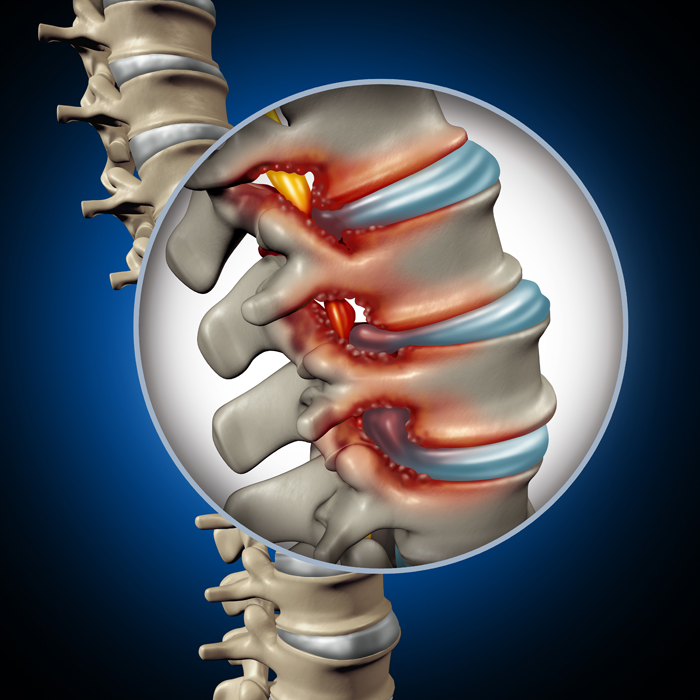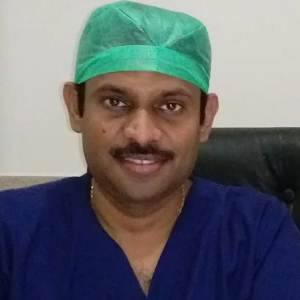Spinal Stenosis Treatment in Alwarpet, Chennai
Spinal stenosis is a health condition that develops due to the narrowing of your spinal canal (the hollow passage within your spine). A compressed backbone (spine) has less room for the spinal cord and nerves branching off it, making the spinal canal tight. It leads to pinching, irritation, or compression of the spinal cord or related nerves, causing pain and discomfort.
If you are looking for spinal stenosis treatment in Alwarpet, Chennai, you can search for “the best spinal stenosis hospital near me.”

What Are the Types of Spinal Stenosis?
Depending on the affected area and severity of the condition, you are likely to experience pain, weakness, a tingling sensation in your hands, legs, feet, back, arms, or neck. The classification of spinal stenosis depends on the affected area. The two common types of this condition include:
Cervical stenosis: This affects the spine of your neck.
Lumbar stenosis: It impacts the backbone of your lower back.
What Are the Symptoms of Spinal Stenosis?
People with spinal stenosis may or may not experience any symptoms initially. The condition usually progresses slowly and aggravates over time. Also, the symptoms are likely to vary from one person to the other.
The symptoms of cervical stenosis include the following:
- Pain in the neck
- Tingling sensation or numbness in an arm, hand, leg, or foot
- Feebleness in hands, arms, foot, or legs
- Difficulty walking
- Balance issues
- Bladder dysfunction (severe cases)
- Bowel disorder (severe cases)
The symptoms of lumbar stenosis include:
- Tingling sensation or numbness in a leg, or foot
- Feebleness in the foot or legs
- Back pain
- Cramping, pain, and discomfort in one or both legs when standing or walking for long.
What Are the Causes of Spinal Stenosis?
The causes of this spinal condition may include the following:
- Congenital spinal stenosis: In some cases, people have a compressed spinal canal by birth.
- Arthritic spurs or bone overgrowth: Wear-and-tear bone conditions like osteoarthritis can cause bone spurs or projections. These projections extend into your spinal passage, making the spinal canal compressed.
- Herniated disks: When the rubbery shock absorbers that sit between your vertebrae dry out with time, cracks are likely to appear on the outer side of the disk. This might cause narrowing of the spinal passage by allowing the soft inner material inside it.
- Thickened ligaments: Ligaments hold your backbone together. When these fiber bands become thick with age and protrude into the hollow passage of your spine (due to arthritis), the spinal canal becomes narrow.
- Tumors: Abnormal growths inside your backbone or between the spine and the vertebrae can also shrink the spinal passage.
- Spinal trauma and injuries: Dislocated or fractured bones can also compress the spinal canal.
When to Seek Medical Attention?
If you experience any of the symptoms mentioned above, make sure to visit a spinal stenosis specialist in Alwarpet, Chennai, immediately.
Request an appointment at Apollo Spectra Hospitals, Alwarpet, Chennai.
Call 1860 500 2244 to book an appointment.
What Are the Treatment Options for Spinal Stenosis?
Some of the commonly used treatment options for spinal stenosis available at a spinal stenosis hospital in Alwarpet include the following:
Medications: Your doctor is likely to prescribe medications to manage the pain and discomfort. The medicines may include:
- Painkillers
- Antidepressants
- Opioids
- Anti-seizure drugs
- Steroid injections
Physical therapy: If you lead a less active life to keep the pain in control, your doctor is most likely to recommend physical therapy. It will help you:
- Improve your flexibility and balance
- Increase endurance and strength.
Decompression therapy: If you have lumbar stenosis, your doctor may also suggest decompression therapy or percutaneous image-guided lumbar decompression (PILD). During this procedure, your doctor uses specially-made instruments to remove a portion of the thickened ligament. Doing this clears your spinal canal, thus reducing the impact on your spine and nerve roots.
Surgery: If other treatments do not work for you, your doctor is likely to recommend surgery. Some of the common surgical procedures include:
- Laminectomy
- Laminotomy
- Laminoplasty
- Minimally invasive surgery.
Look for a “spinal stenosis specialist near me” to find the right treatment for you.
Conclusion
In most cases, people with spinal stenosis lead active and healthy lives. Consult your doctor and decide on an action plan that includes your lifestyle, diet, and physical fitness, to manage your symptoms well.
Request an appointment at Apollo Spectra Hospitals, Alwarpet, Chennai.
Call 1860 500 2244 to book an appointment.
Yes, spinal stenosis can affect multiple locations at a time. So, you may develop both lumbar and cervical conditions together.
Although spinal stenosis is not a reversible condition, if you eat right, exercise regularly, maintain a healthy weight, and live by your doctor's recommendations, you can manage your symptoms well and lead an active life.
An untreated condition like this can lead to permanent complications, including:
- Paralysis
- Weakness
- Numbness
- Balance issues
- Incontinence.
Symptoms
Our Doctors
DR. KARTHIC BABU NATARAJAN
MBBS,MD, DNB...
| Experience | : | 13 Yeras Experience |
|---|---|---|
| Speciality | : | Pain Management... | Location | : | MRC Nagar |
| Timings | : | On Call... |
DR. SHEERIN SARAH LYSANDER
MBBS, MD(Anesthesiol...
| Experience | : | 8 Yeras Experience |
|---|---|---|
| Speciality | : | Pain Management... | Location | : | MRC Nagar |
| Timings | : | Mon - Sun : 7:00 AM ... |
Our Top Specialities
NOTICE BOARD
CONTACT US
CONTACT US
 Book Appointment
Book Appointment




.svg)
.svg)
.svg)
.svg)








